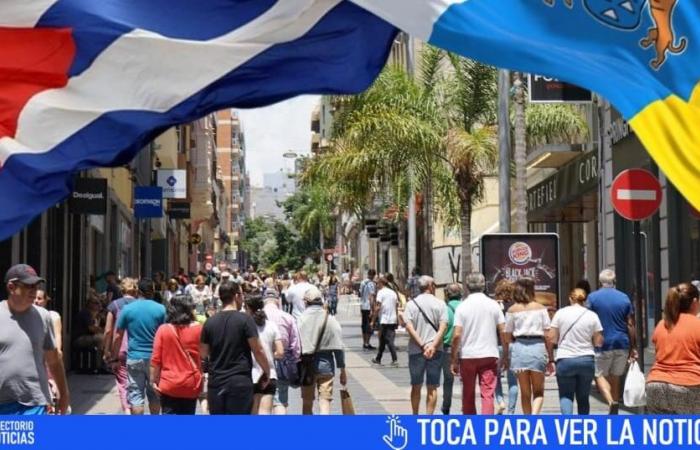The number of Cubans who obtained Spanish nationality in the Canary Islands increased significantly in 2023, reaching a record number of 2,967, more than double the 1,246 registered in the previous year (2022).
Last year, the number of foreign residents who achieved Spanish nationality in the Canary Islands experienced considerable growth.
Among these new citizens, more than two thousand Cubans stood out, according to data provided by the National Institute of Statistics (INE) and cited in an article by MaspalomasNow.
“This report shows that, in absolute numbers, the country of origin of the largest number of people who acquired Spanish nationality residing in the archipelago, both in 2023 and 2022, was Cuba,” the article states.
In total, 11,622 foreigners were naturalized in the Canary Islands during 2023, which represents an increase of 84% compared to 6,291 in 2022.
Cuba leads the list of countries of origin with the largest number of new Spanish citizens in the archipelago, followed by Venezuela, Morocco, Colombia and Argentina.
Other countries such as the Dominican Republic, Mauritania, Honduras, Bolivia and Peru also showed significant figures, with nationalizations varying between 202 and 149 people.
In the previous year, the countries with the highest number of naturalized people also included India, the Dominican Republic, Uruguay, Ecuador and Senegal, with figures ranging from 147 to 131 new Spaniards.
The Canary Islands are becoming more and more Cuban
This notable increase in obtaining nationalities shows a growing trend of integration of foreigners in the Canary Islands. Highlighting the prominent presence of Cubans and Venezuelans among the new Spanish citizens.
This phenomenon also underlines why the Canary Islands are one of the preferred areas for Cubans to settle in Spain. Cubans in the Canary Islands feel “more at home,” because even the linguistic accent is very similar. The geographical and cultural similarities with Cuba, the warmer climate compared to the peninsula, and the historical emigration of Canaries to Cuba are factors that influence this preference.
Furthermore, the Democratic Memory Law (Grandchildren Law) has made it easier for the descendants of those islanders to now emigrate to Spain and obtain nationality on the same properties where their grandparents, who one day emigrated for economic reasons, were born.

Subscribe to notifications








